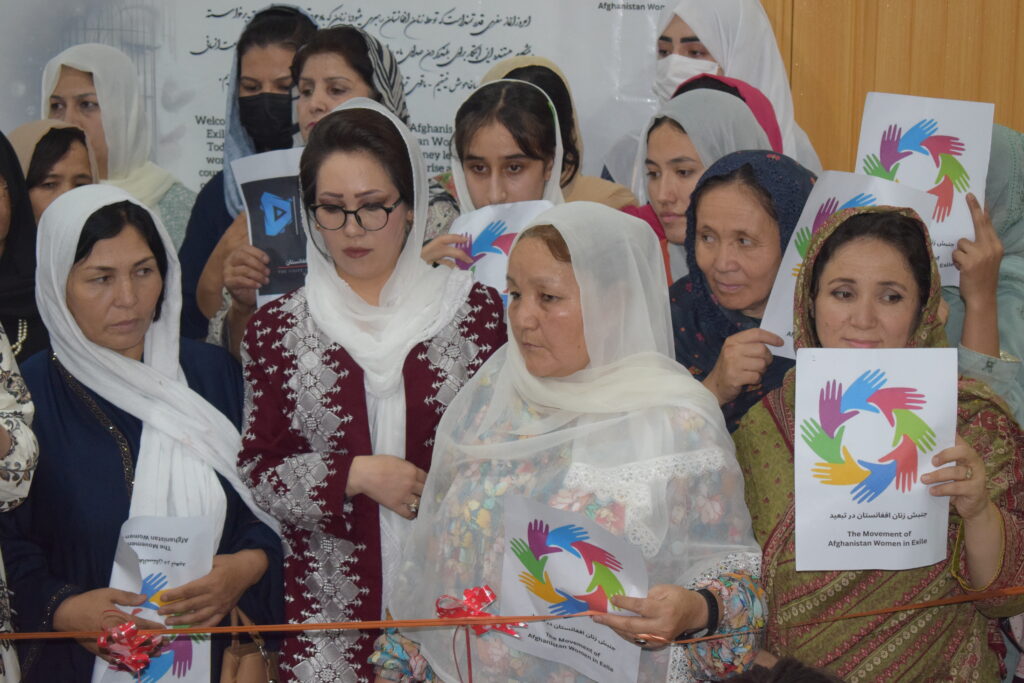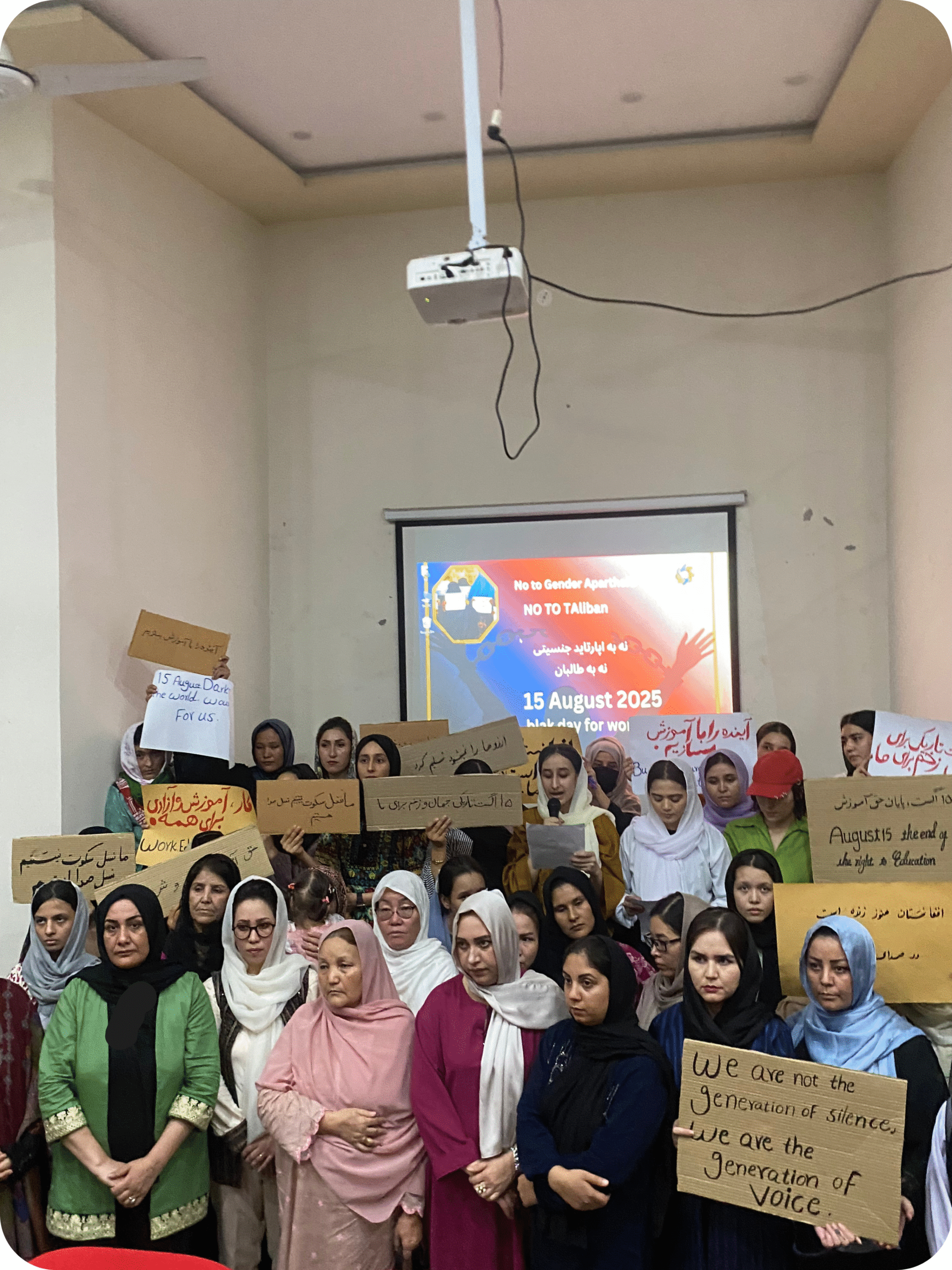
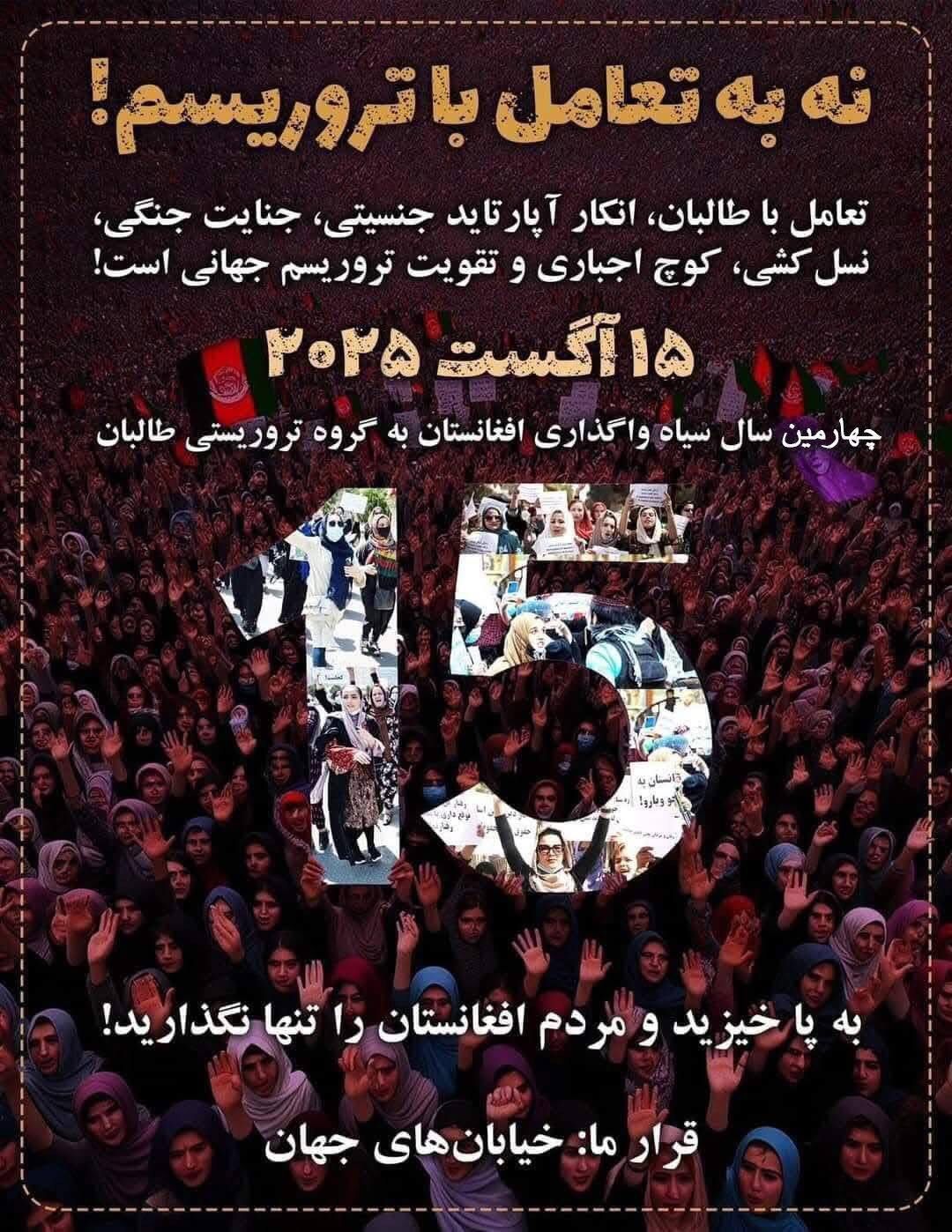
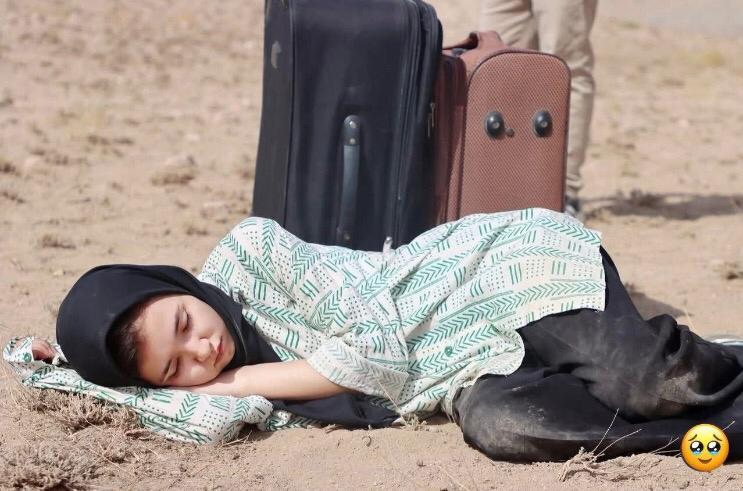
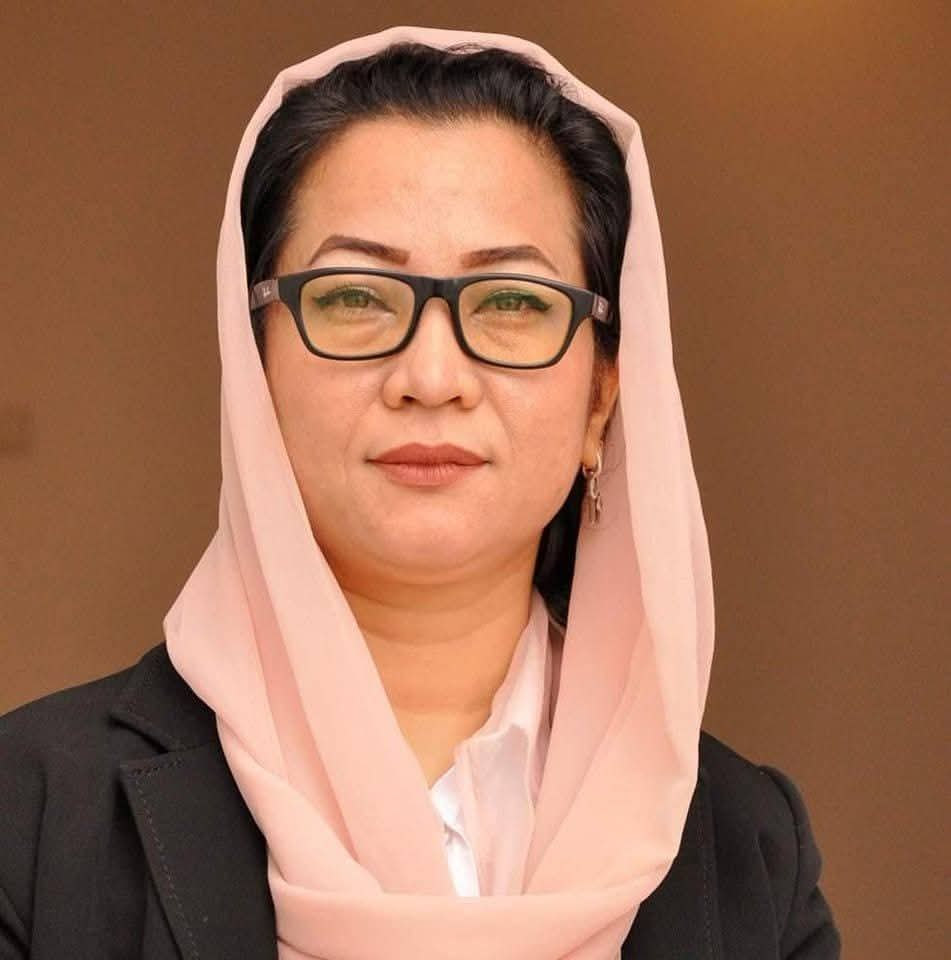

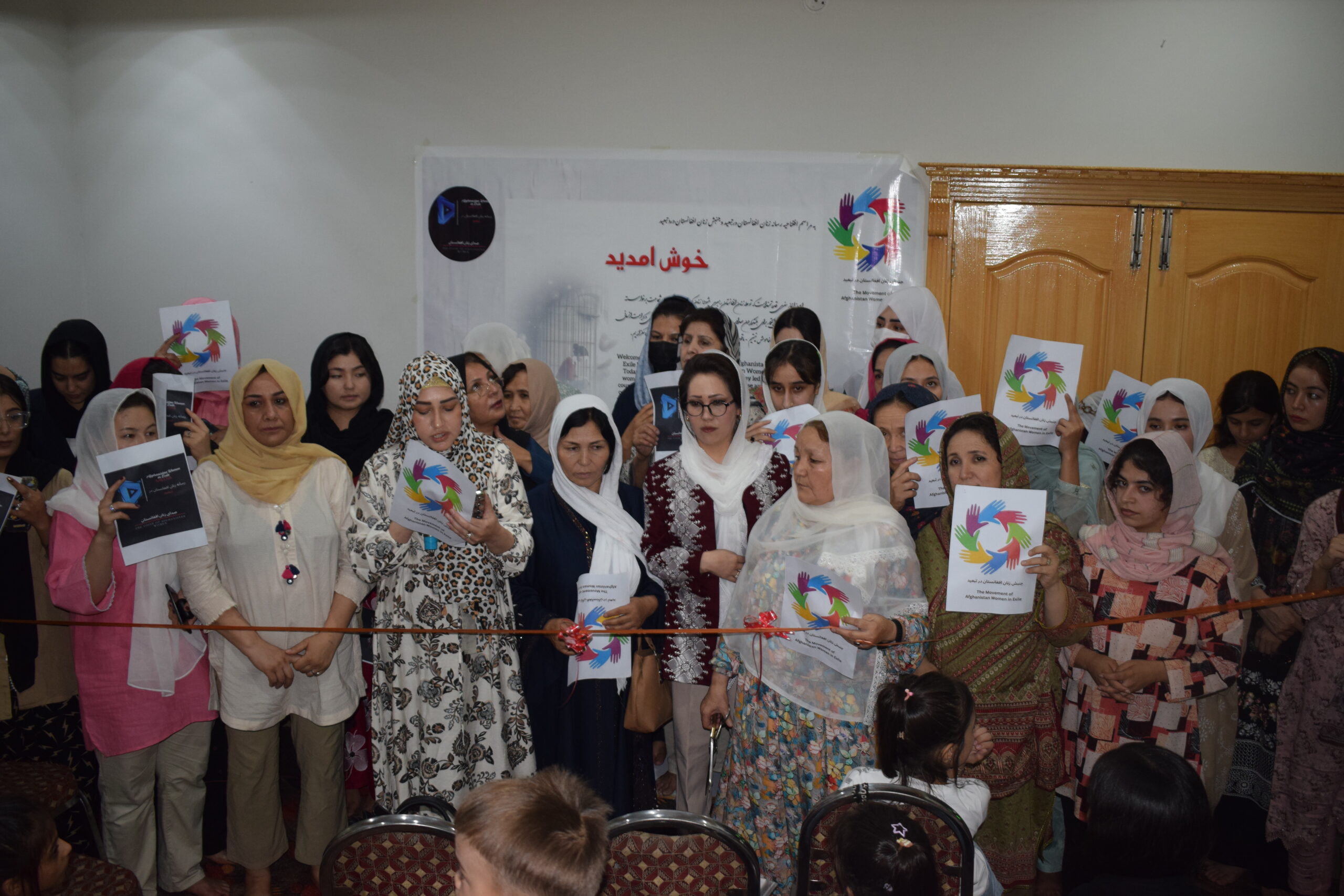

به مناسبت ۱۵ اگست، چهارمین سالروز سقوط افغانستان، **جنبش زنان افغانستان در تبعید** در پاکستان برنامهای ویژه برگزار کرد که محور آن یادآوری رنجها، مقاومت و امید زنان افغان در برابر سلطه طالبان بود برنامه با نمایش یک مستند آغاز شد که دوره سقوط و روایتهای تلخ و شجاعانه زنان افغان را به تصویر کشیده…
مقدمه از زمان بازگشت طالبان به قدرت در آگوست ۲۰۲۱، افغانستان شاهد تحول عمیق و گسترده در عرصه حقوق بشر، به ویژه در حوزه حقوق زنان و دختران بوده است. در حالی که طالبان در سطح بینالمللی ادعا کردهاند که بهدنبال حکمرانی شمولگرا و مبتنی بر ارزشهای اسلامیاند، شواهد میدانی و تصمیمات حقوقی آنها در…
چنانچه برهمگان هویداست درین دوسال پسین کشور های پاکستان ، ایران و تاجکستان پالیسی های تازه ای را درجهت بیرون کردن مهاجرین از کشور های شان طرح و عملی نموده اندکه این تشابه درعملکرد این کشورها به وضوح دیده میشود این تشابهات مانند برون کردن مهاجرین به اجبار و بدون درنظرداشت قوانین بین المللی و…
به مناسبت ۱۵ اگست، چهارمین سالروز سقوط افغانستان، **جنبش زنان افغانستان در تبعید** در پاکستان برنامهای ویژه برگزار کرد که محور آن یادآوری رنجها، مقاومت و امید زنان افغان در برابر سلطه طالبان بود برنامه با نمایش یک مستند آغاز شد که دوره سقوط و روایتهای تلخ و شجاعانه زنان افغان را به تصویر کشیده…
مقدمه از زمان بازگشت طالبان به قدرت در آگوست ۲۰۲۱، افغانستان شاهد تحول عمیق و گسترده در عرصه حقوق بشر، به ویژه در حوزه حقوق زنان و دختران بوده است. در حالی که طالبان در سطح بینالمللی ادعا کردهاند که بهدنبال حکمرانی شمولگرا و مبتنی بر ارزشهای اسلامیاند، شواهد میدانی و تصمیمات حقوقی آنها در…
چنانچه برهمگان هویداست درین دوسال پسین کشور های پاکستان ، ایران و تاجکستان پالیسی های تازه ای را درجهت بیرون کردن مهاجرین از کشور های شان طرح و عملی نموده اندکه این تشابه درعملکرد این کشورها به وضوح دیده میشود این تشابهات مانند برون کردن مهاجرین به اجبار و بدون درنظرداشت قوانین بین المللی و…
به مناسبت ۱۵ اگست، چهارمین سالروز سقوط افغانستان، **جنبش زنان افغانستان در تبعید** در پاکستان برنامهای ویژه برگزار کرد که محور آن یادآوری رنجها، مقاومت و امید زنان افغان در برابر سلطه طالبان بود برنامه با نمایش یک مستند آغاز شد که دوره سقوط و روایتهای تلخ و شجاعانه زنان افغان را به تصویر کشیده…
مقدمه از زمان بازگشت طالبان به قدرت در آگوست ۲۰۲۱، افغانستان شاهد تحول عمیق و گسترده در عرصه حقوق بشر، به ویژه در حوزه حقوق زنان و دختران بوده است. در حالی که طالبان در سطح بینالمللی ادعا کردهاند که بهدنبال حکمرانی شمولگرا و مبتنی بر ارزشهای اسلامیاند، شواهد میدانی و تصمیمات حقوقی آنها در…
چنانچه برهمگان هویداست درین دوسال پسین کشور های پاکستان ، ایران و تاجکستان پالیسی های تازه ای را درجهت بیرون کردن مهاجرین از کشور های شان طرح و عملی نموده اندکه این تشابه درعملکرد این کشورها به وضوح دیده میشود این تشابهات مانند برون کردن مهاجرین به اجبار و بدون درنظرداشت قوانین بین المللی و…
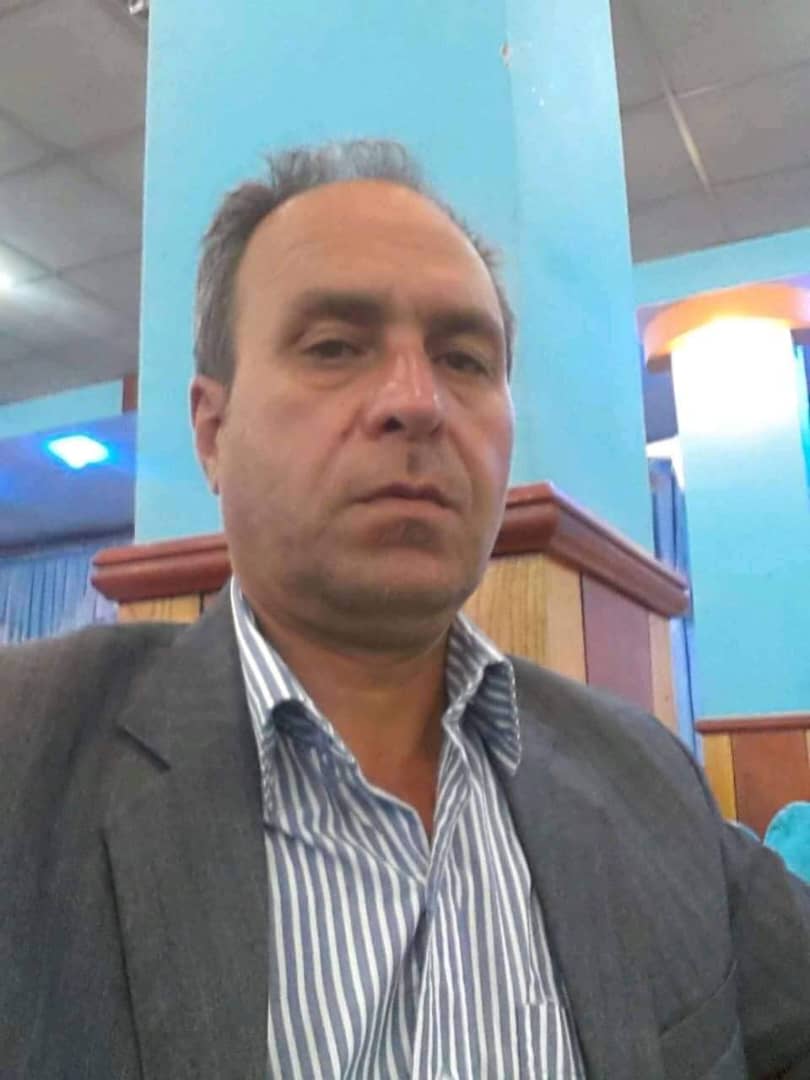




چنانچه برهمگان هویداست درین دوسال پسین کشور های پاکستان ، ایران و تاجکستان پالیسی های تازه ای را درجهت بیرون کردن مهاجرین از کشور های شان طرح و عملی نموده اندکه این تشابه درعملکرد این کشورها به وضوح دیده میشود.
این تشابهات مانند برون کردن مهاجرین به اجبار و بدون درنظرداشت قوانین بین المللی و قوانین مهاجرت و همچنان رویه نامناسب یعنی زشتی وبرخورد غیر انسانی کاملا همسویی با رژیم طالبانی را نمایان میسازد.
گرچه مهاجرت مردم افغانستان نسبت مشکلات امنیتی و سیاسی تقریبا نیم قرن به درازا کشیده و برای کشور های میزبان نیز مشکلاتی را بوجود آورده اما منافعی را نیز درپی داشته است. گرچه در مهاجرت و بدبختی مردم افغانستان کشور های منطقه و جامعه جهانی نقش اساسی داشته اند و سیاست های کشور های توانمند وهمسایگان باعث این این مشکل شده است بنا براین حل نمودن این مشکلات به شکل انسانی آن نیز وظیفه همین کشور هاست. چون مشکلی را که خودشان خلق کرده اند باید حل نیز کنند.
همیشه از موجودیت مهاجرین درکشور های میزبان مانند ابزار سیاسی در جامعه بین المللی استفاده سوء وجود داشته و پول های گزافی نیز بنام مهاجر به کشور های ایران ، پاکستان و تاجکستان از طریق نهاد های مختلف سرازیر شده است اما اینکه به مهاجرین تعلق نگرفته حرفیست جدا که احتیاج به تحقیق بیشتر درین مورد دارد.
اما برون کردن مهاجرین با شیوه های مشابه از جانب کشورهای میزبان بر علاوه اینکه انسانی نیست ، جبارانه و ستمگرانه نیز است. جاسوس خواندن مهاجرین و یا دیگر اتهامات وارده از جانب جمهوری اسلامی ناپسندانه ، غیر انسانی و ظالمانه است، طبیعیست که در جمع بییشتر از 5 ملیون مهاجر اشخاص و افراد نادرست و نامناسب وجود داشته اما نمیشود یک کتله پنج ملیونی را دزد و جاسوس خطاب کرد و برخورد نادرست با همه مهاجرین داشت.
مهاجرین باز گشت شده با انکه نمیتوانند پول های خود را از صاحب کاران خویش اخذ نمایند ، پول های پیش پرداخت خانه هایشان نیز سفاکانه خورده میشود.
آنعده مهاجرینی که بعد ازسرنگونی رژیم جمهوریت وارد این کشور ها شده اند زیاد تر نسبت تهدید های امنیتی وطن وماوای خود را ترک نموده تن به مهاجرت داده اند که اکثر اینها در بازگشت به مرگ روبرو شده اند یا اینکه زندانی شده اند.
درجامعه طالبانی که حذف دراماتیک بانوان درجامعه وستم مردسالاری بیداد میکند و توان تنفس زنان رادرجامعه از آنان گرفته ادامه تحصیل و کاربرای بانوان وطن ممنوع شده و به ازدواج های اجباری و زیر سن تهدید میشوند، که درین میان ورود بانوان مهاجر به افغانستان به معنای اعدام و زندانی شدن این قشر عظیم ، حتمی و دور از امکان نیست.
گفته شده که اکثر مهاجرین با مشکلات اقتصادی و اجتماعی و روانی دردیار هجرت روبرو بوده اند ، گرچه این مهاجرین منبع عایداتی خوبی برای کشور های میزبان اند اما باز هم نسبت منافع سیاسی و اقتصادی شان محکوم به ترک اجباری میشوند که چرایی این موضوع را در راهکار ها وسیاست های مهاجر ستیزانه ایران بخوبی میتوان دید.
از کشور های میزبان توقع میرود تا اصول انسانی وقوانین بین المللی را درخصوص مهاجرت در برخورد با مهاجرین افغانی درنظر داشته و انسانیت ، حسن همجواری و آینده روابط اجتماعی ، فرهنگی ، تجاری و منطقوی خویش را درنظر داشته باشند.
از نهاد های بین المللی ومدافعین حقوق بشر ومدافعین حقوق مهاجرین تمناداریم تا در تامین امنیت جانی ، مالی و روانی مهاجرین توجه داشته در گفتگو وروابط با کشور های میزبان جهت ایجاد تسهیلات لازم در جلوگیری از بازگرداندن مهاجرین به افغانستان جلوگیری نمایند.
اگر روزی افغانستان دارای یک دولت مقتدر گردد و با عقده هاییکه در دل مردم جا گرفته است کشور های همسایه به خصوص ایران از انتقام مردم برحذر نخواهد بود.
زنان افغانستان با همه نابسامانی های کنونی ،دارند زیر چکمه های ستم عصر له میشوند و توان زندگی در افغانستان را ندارند و اگر به جبر در بازگرداندن بانوان افغان ادامه داده شود فاجعه بزرگ تاریخی رقم خواهد خورد و همسایگان درین امر مسوول وجوابگو خواهد بود.
همچنان از کشور های مهاجر پذیر تقاضا مندیم تا در جذب مهاجرین و انتقال آنها به کشور های شان با جدیت و سرعت عمل کوشیده و کماکان د رانتقال هاجرین به کشور های شان بکوشند.
میرویس خاورین
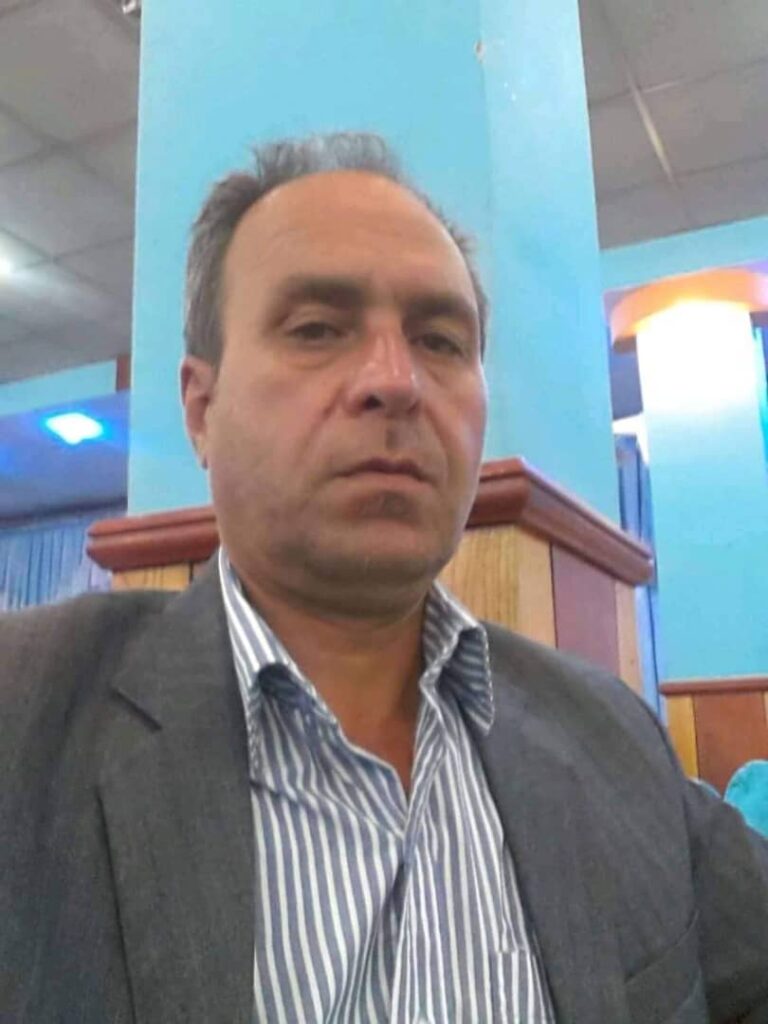
It has been four years since severe restrictions were imposed on women in Afghanistan—restrictions that have not only disrupted normal life but pushed many to the brink of self-immolation and suicide. This bitter yet true narrative echoes the silent voices of thousands of girls in this land.
Life for Afghan women—especially the girls breathing in the heart of insecurity and extremism—has become a silent battlefield every single day; a war for preserving the most basic human rights.
Each morning, I begin with the hope that maybe today, this bitter nightmare will come to an end. A nightmare that has stolen my sleep for four years and destroyed my joys: education, work, learning, happiness, and even the right to simply breathe.
They tell us: cover yourselves because your bodies are provocative, don’t speak, stay at home, be deprived of education, and even submit to forced marriage.
But what more do they want from us?
Do they want us to kill ourselves? Or spend our lives with someone we were forced to marry?
Even during the time of the Prophet of Islam, women like Khadijah were businesswomen, and girls were educated. Women were seen as human beings, not sinful beings. So how is it that today, in the name of religion, women have been pushed to the margins?
We, the women of Afghanistan, are standing amidst humiliation, social pressure, harsh prohibitions, and security threats. We are not silent. We are standing because we know our silence will only license more crimes.
We have risen from the soil—wounded but alive, weary but determined.
We do not wish to be heroes; we only want to be free, as every human being deserves to be.
If we do not scream today, another girl will become a victim tomorrow.
We are the women of Afghanistan — we are alive, we will remain, and we will fight.
By Nargis Dolatshahi

Mahgul Rahimi — A Young Woman’s Fight for Freedom Under Taliban Rule
“She jumped from a rooftop to escape a forced marriage. She survived — but at a devastating cost.”
This real story was reported to the Afghanistan Women in Exile Media by a source close to the her, and verified through contact with individuals familiar with the situation in Daikundi province.
Mahgul Rahimi, a 21-year-old woman from the Miramor district of Daikundi province, is now living with life-changing injuries after a desperate act of resistance against forced marriage under Taliban pressure.
According to those familiar with her story, Magul had been a dedicated student and completed her education up to the 10th grade. Like many Afghan girls, her schooling was abruptly halted when the Taliban returned to power and barred girls from attending school.
In February 2024, a member of the Taliban reportedly sought Mahgul’s hand in marriage. Her father initially declined the proposal. However, under direct threats and mounting pressure — both from Taliban representatives and from societal norms that often devalue daughters — he felt he had no choice but to agree.
Mahgul was strongly opposed to the marriage. Her family and local sources indicate that she was deeply distressed and felt she had no safe means of refusal.
On May 20, 2025, in what has been described as a desperate attempt to escape, Mahgul threw herself from the rooftop of her family home. She survived the fall but sustained severe spinal injuries. She is now hospitalised and has been receiving treatment at the central hospital in Nili, the provincial capital. According to hospital staff, she is expected to be discharged on June 15.
Despite her injuries, Mahgul’s fears persist. In a conversation reportedly held with a member of Women of Afghanistan in Exile, she said:
“I am not safe in my own home. If I go back, the Taliban might come for me again. My only hope is to escape to a safe place and be free from this tragic destiny.”
At the time of this writing, she remains in urgent need of protection, medical support, and the attention of international human rights organisations. Those familiar with her case stress that her situation is unique. Her story reflects the dire circumstances faced by many Afghan women living under the threat of gender-based violence and systemic oppression.
Mahgul’s courage in speaking out — even in such difficult circumstances — reminds us of the resilience of Afghan women, and the urgent need for the international community to listen, respond, and act.
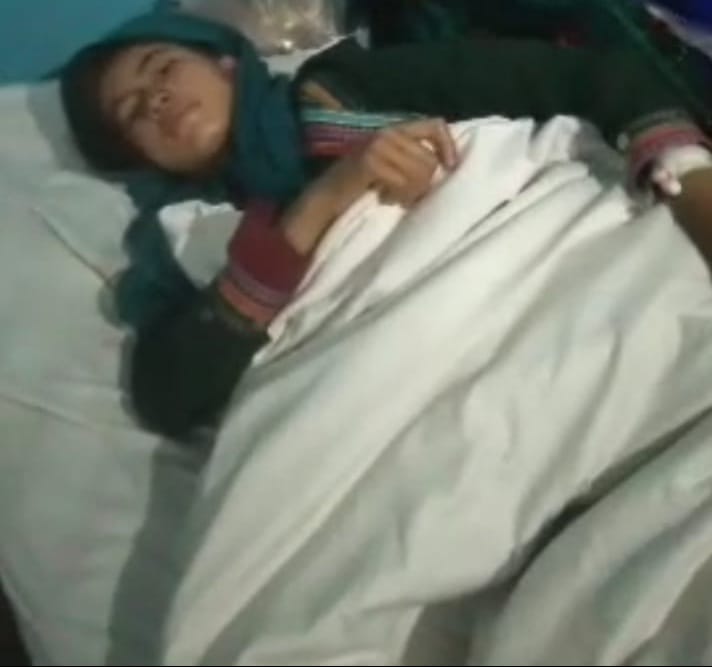
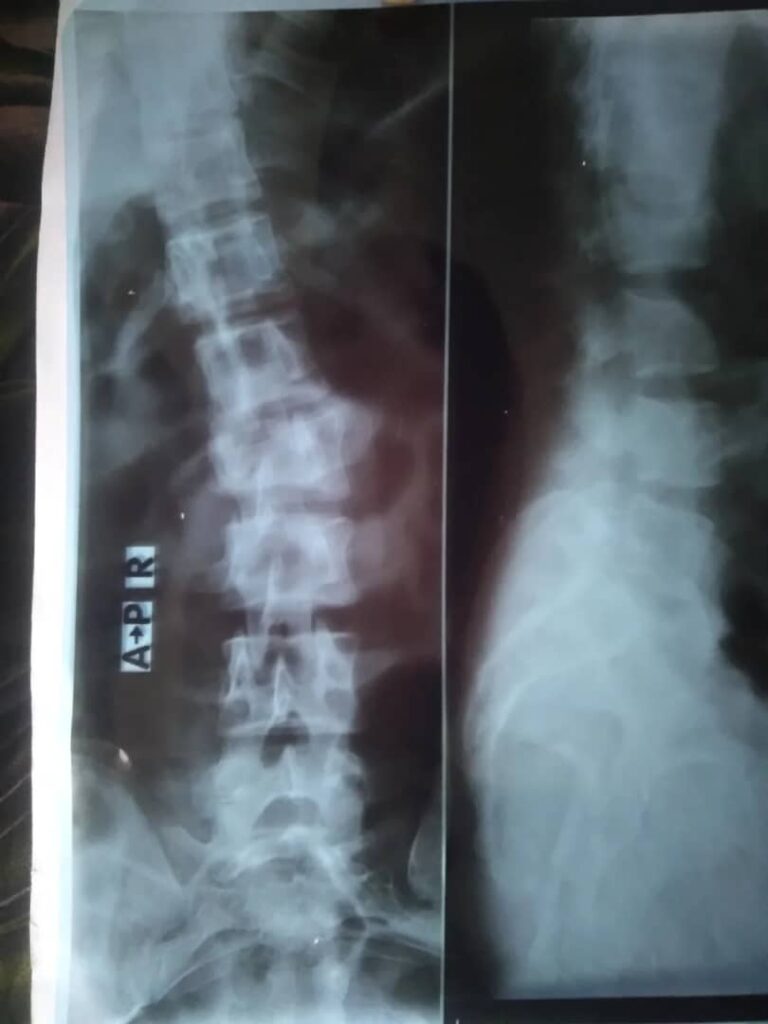
The recent discovery of the remains of Kobra Rezai, a 26-year-old Afghan woman who had been missing for over 40 days, has drawn deep concern from human rights observers, migrant communities, and women’s advocacy groups. Ms. Rezai, a resident of Varamin, was reportedly last seen en route to her place of work. Her dismembered body was later located in the Pishva district, with confirmation from judicial and forensic authorities.
According to family members, parts of Ms. Rezai’s body are still missing, along with her personal belongings, including her mobile phone and identification documents. Police authorities have stated that two individuals have been detained in relation to the case, although further details have not yet been disclosed to the family or the public.
The family has also faced obstacles in obtaining authorization to hold a burial ceremony, raising concerns among civil society actors about the treatment of Afghan migrant families in similar situations.
This tragic incident has taken place against the backdrop of increasing reports of violence, discrimination, and vulnerability experienced by Afghan migrants in Iran, particularly women. Previous cases, including acts of self-harm and public distress by Afghan women, have reportedly received limited official attention, which has prompted calls for more proactive and transparent responses.
Human rights defenders and organizations focused on women and migrants have emphasized that the case of Kobra Rezai represents not only a deep personal loss, but also underscores the broader challenges faced by migrant women in terms of safety, legal protection, and access to justice.
In response, civil society representatives have issued appeals to the Islamic Republic of Iran to:
Conduct a comprehensive, transparent, and impartial investigation into Ms. Rezai’s death;
Ensure that those responsible are held accountable in accordance with the law;
Uphold the safety, dignity, and legal rights of all migrants, particularly women.
Furthermore, the international community, including relevant United Nations agencies and global human rights organizations, is being urged to closely monitorthe situation of Afghan migrants in Iran and to consider meaningful support mechanisms, especially for vulnerable groups such as women and girls.

عید قربان در حالی فرا میرسد که زنان افغانستان همچنان زیر سایهی محرومیت، تبعیض و سکوت اجباری روزگار میگذرانند. اما با وجود تمام این فشارها، صدای ایستادگی، آگاهی و مبارزهی آنان خاموش نشده و نخواهد شد
ارزشهای این عید، امروز در زندگی روزمرهی زنانی بازتاب دارد که با وجود حذف سیستماتیک، همچنان برای عدالت، آموزش، آزادی و حقوق انسانیشان میجنگند
در این روز معنوی، یاد و مقاومت تمام زنان محروم وطن را گرامی میداریم و از جامعه جهانی میخواهیم که در کنار مطالبات بهحق زنان افغانستان بایستد و این رنج را نادیده نگیرد
باشد که عید قربان امسال، نویدبخش روزی باشد که عدالت، آزادی و کرامت انسانی برای همه زنان افغانستان تحقق یابد
با امید به فردایی روشن و برابر
فرزانه رضايي
بنیانگذار رسانه زنان افغانستان در تبعید
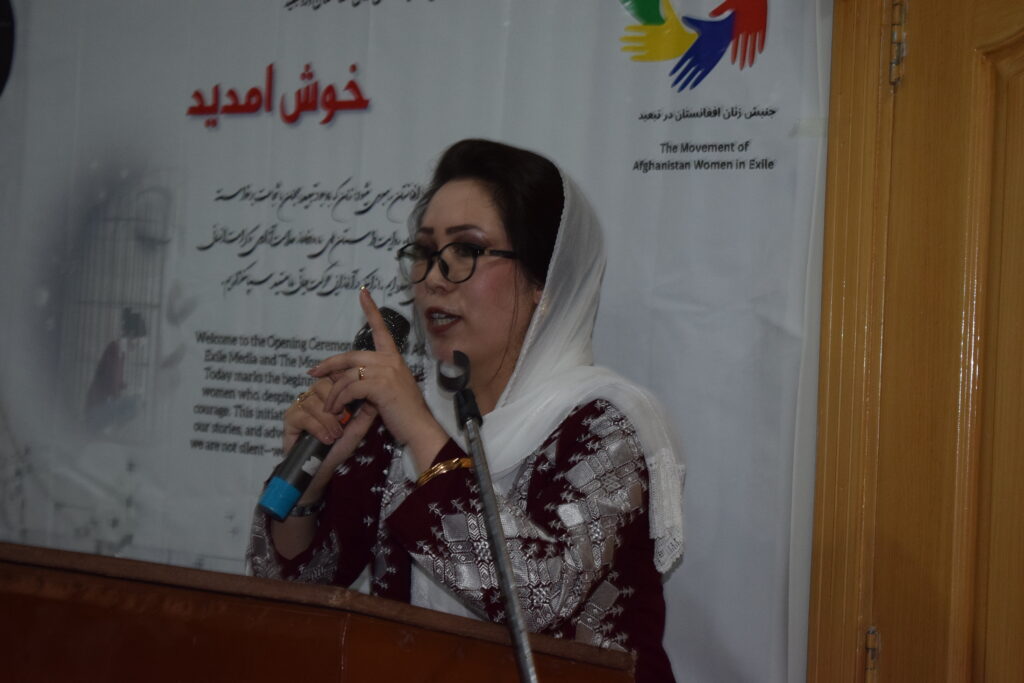
Afghanistan Women’s Movement in Exile Launches in Islamabad to Champion Women’s Rights and Voices
Islamabad, Pakistan — A significant step forward in the fight for women’s rights was marked with the official launch of the Afghanistan Women’s Movement in Exile in Islamabad. Led by renowned activist Ms. Farzana Rezai, the initiative unites a growing community of Afghanistan women advocates, activists, and changemakers committed to justice, freedom, and gender equality.
Coinciding with the launch, the movement also inaugurated its independent media platform, Afghanistan Women’s Media in Exile. This digital outlet is dedicated to amplifying the voices of Afghanistan women living in displacement, offering a space for storytelling, dialogue, and advocacy across borders.
In response to the ongoing suppression of women’s rights in Afghanistan and the limited attention given to displaced women by global institutions, the platform has outlined the following media-focused objectives:
Providing a trusted, independent platform for stories and perspectives of Afghanistan women in exile
Raising national and international awareness of the challenges faced by displaced women
Creating content that challenges stereotypes and counters misinformation
Facilitating dialogue between Afghanistan women and global audiences, institutions, and policymakers
Highlighting achievements, resilience, and leadership of Afghanistan women in exile
The Afghanistan Women in Exile Media stands behind the enduring principle:
“Giving voice to the voiceless.”
With a commitment to ethical journalism and inclusive storytelling, Afghanistan Women’s Media in Exile will feature news reports, personal narratives, investigative pieces, interviews, podcasts, and multimedia content. The platform aims to serve as a reliable source of information about the lives, struggles, and achievements of Afghanistan women in exile, while also connecting with a global audience through digital outreach and media partnerships.
For more information or to engage with the platform, visit Afghanistan Women’s Media in Exile [insert contact or platform link if available].

